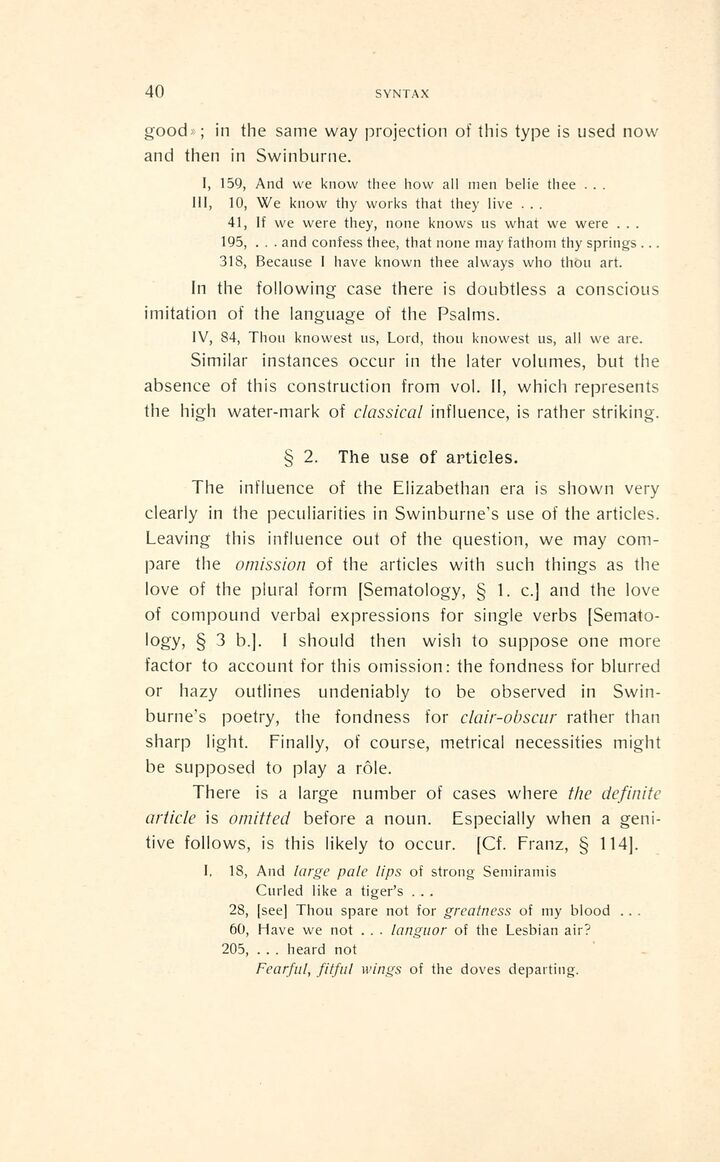
Full resolution (JPEG) - On this page / på denna sida - Sidor ...

<< prev. page << föreg. sida << >> nästa sida >> next page >>
Below is the raw OCR text
from the above scanned image.
Do you see an error? Proofread the page now!
Här nedan syns maskintolkade texten från faksimilbilden ovan.
Ser du något fel? Korrekturläs sidan nu!
This page has never been proofread. / Denna sida har aldrig korrekturlästs.
40
SYNTAX
good»; in the same way projection of this type is used now
and then in Swinburne.
I, 159, And we know thee how all men belie thee . . .
III, 10, We know thy works that they live . . .
41, If we were they, none knows us what we were . . .
195, . . . and confess thee, that none may fathom thy springs ...
318, Because I have known thee always who thou art.
In the following case there is doubtless a conscious
imitation of the language of the Psalms.
IV, 84, Thou knowest us, Lord, thou knowest us, all we are.
Similar instances occur in the later volumes, but the
absence of this construction from vol. II, which represents
the high water-mark of classical influence, is rather striking.
§ 2. The use of articles.
The influence of the Elizabethan era is shown very
clearly in the peculiarities in Swinburne’s use of the articles.
Leaving this influence out of the question, we may
compare the omission of the articles with such things as the
love of the plural form [Sematology, § 1. c.] and the love
of compound verbal expressions for single verbs
[Semato-logy, § 3 b.]. I should then wish to suppose one more
factor to account for this omission: the fondness for blurred
or hazy outlines undeniably to be observed in
Swinburne’s poetry, the fondness for clair-obscur rather than
sharp light. Finally, of course, metrical necessities might
be supposed to play a role.
There is a large number of cases where the definite
article is omitted before a noun. Especially when a
genitive follows, is this likely to occur. [Cf. Franz, § 114].
I, 18, And large pale lips of strong Semiramis
Curled like a tiger’s . . .
28, [see] Thou spare not for greatness of my blood .. .
60, Have we not . . . languor of the Lesbian air?
205, . . . heard not
Fearful, fitful wings of the doves departing.
<< prev. page << föreg. sida << >> nästa sida >> next page >>